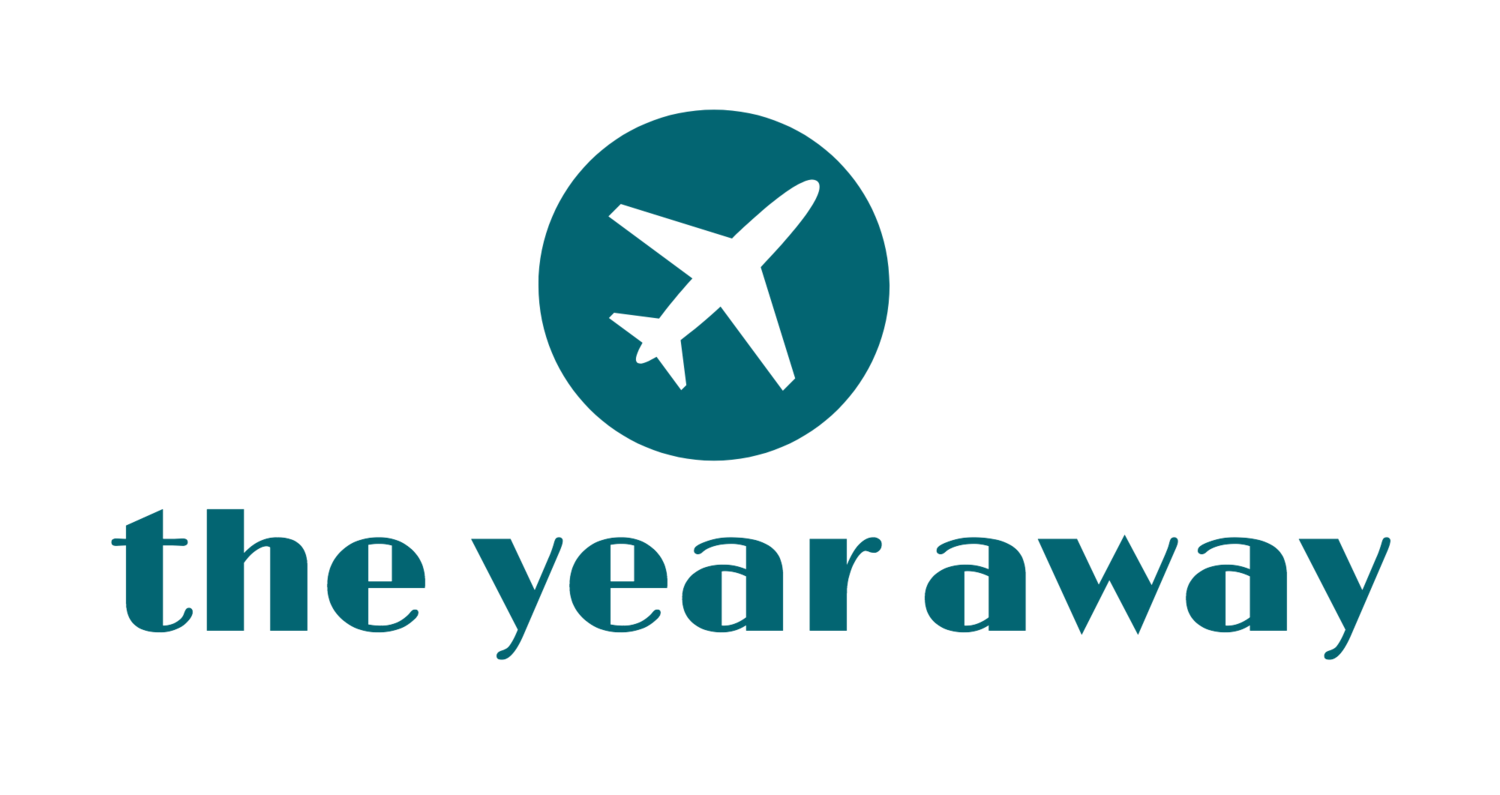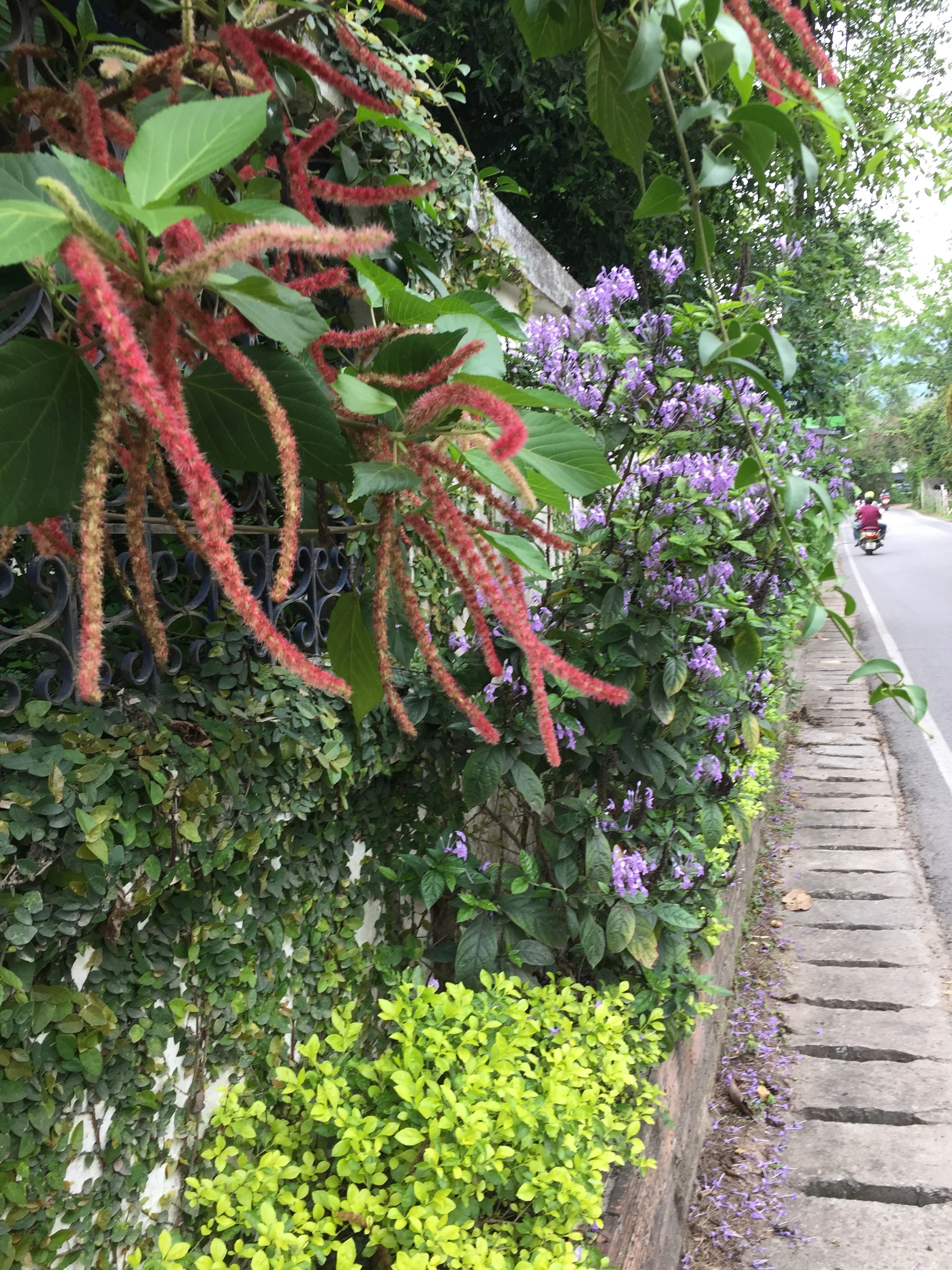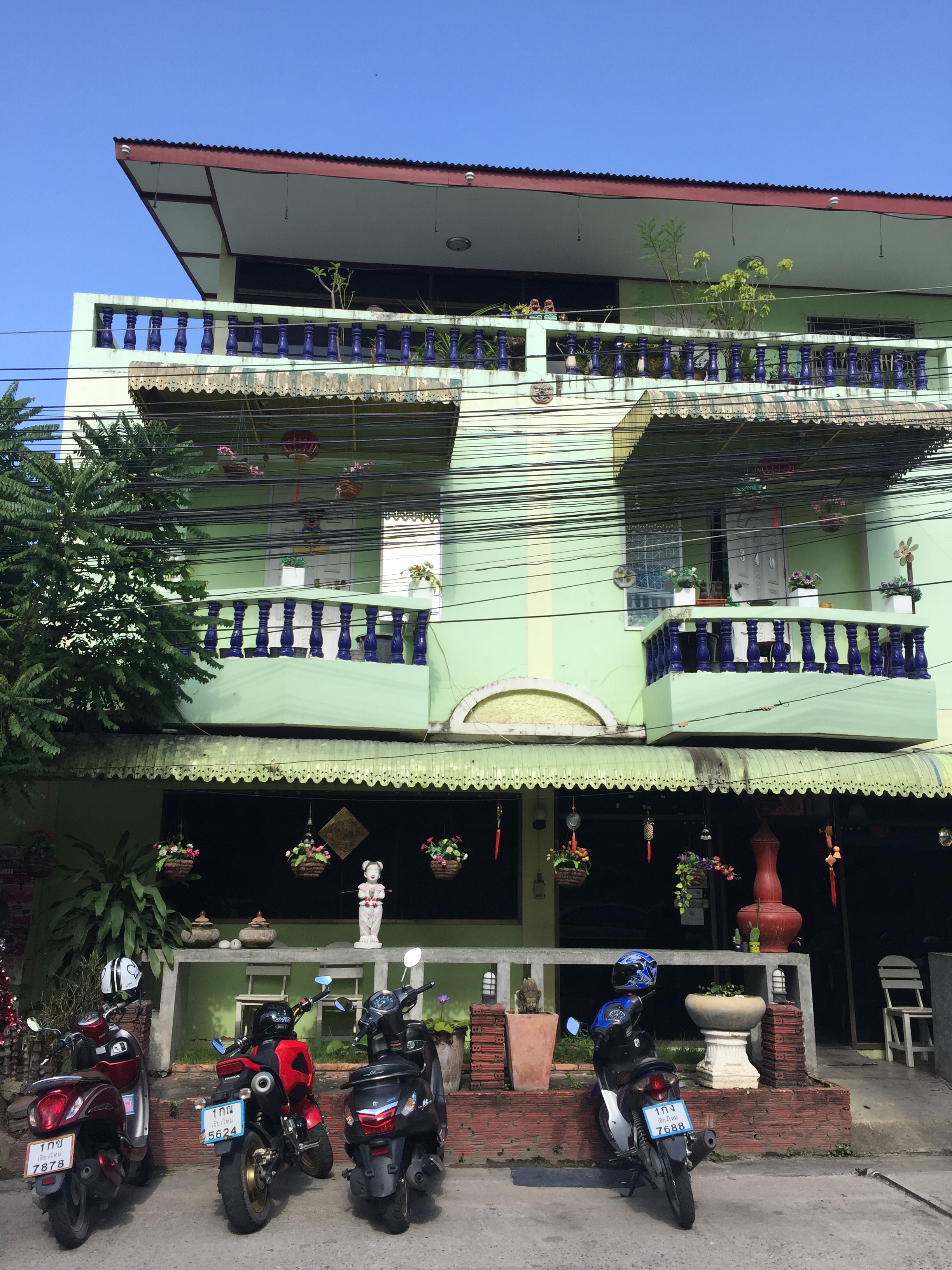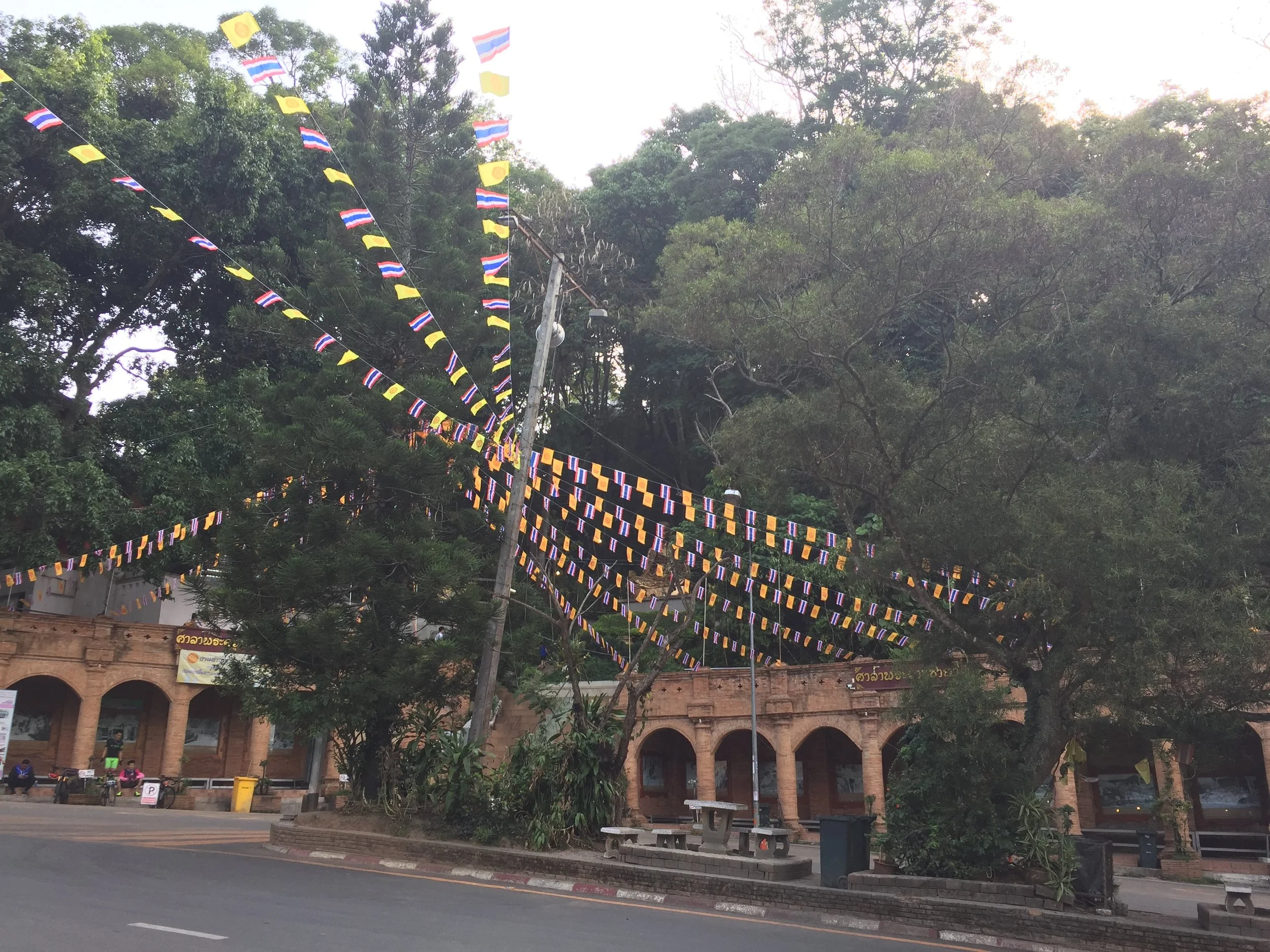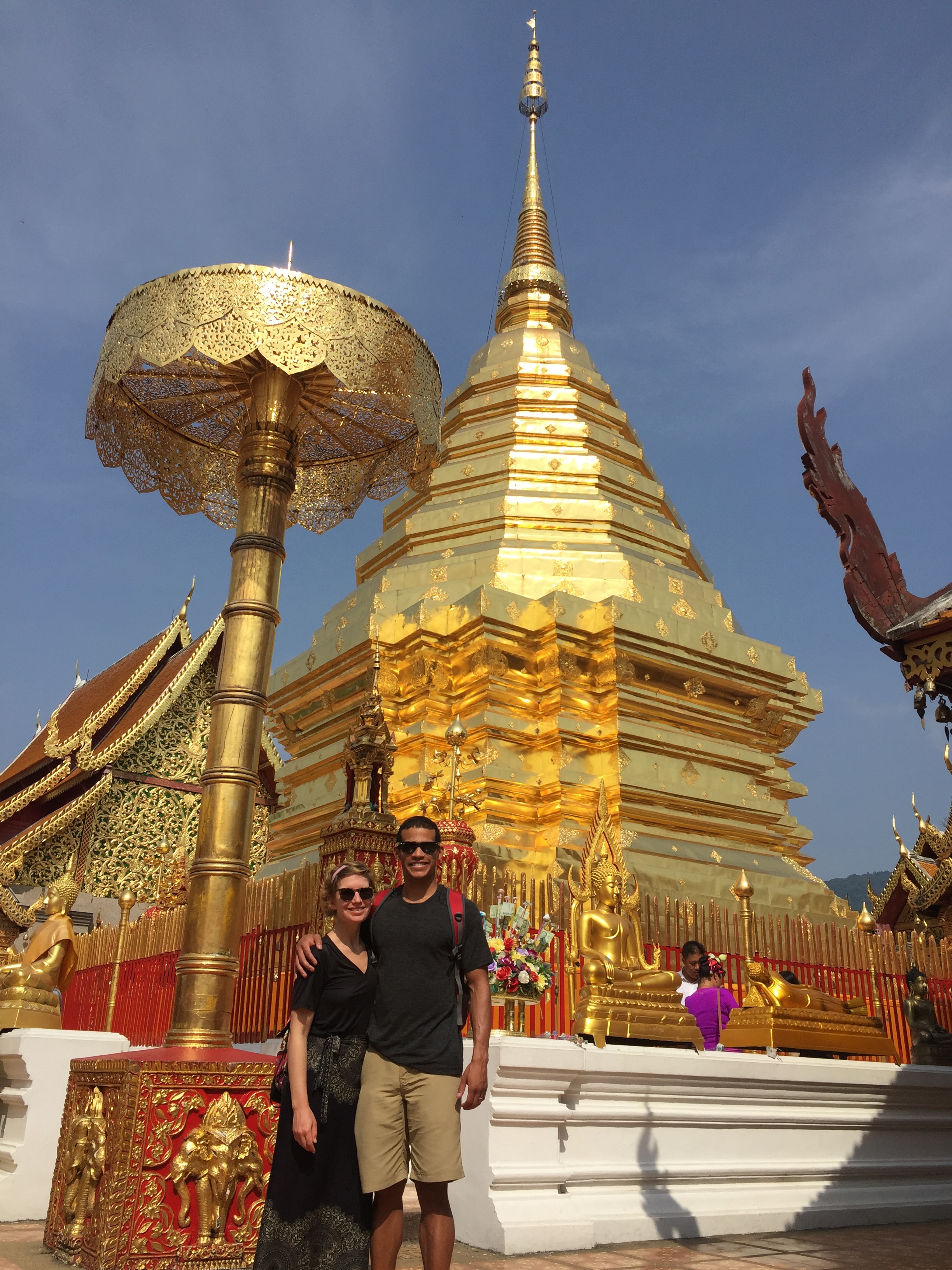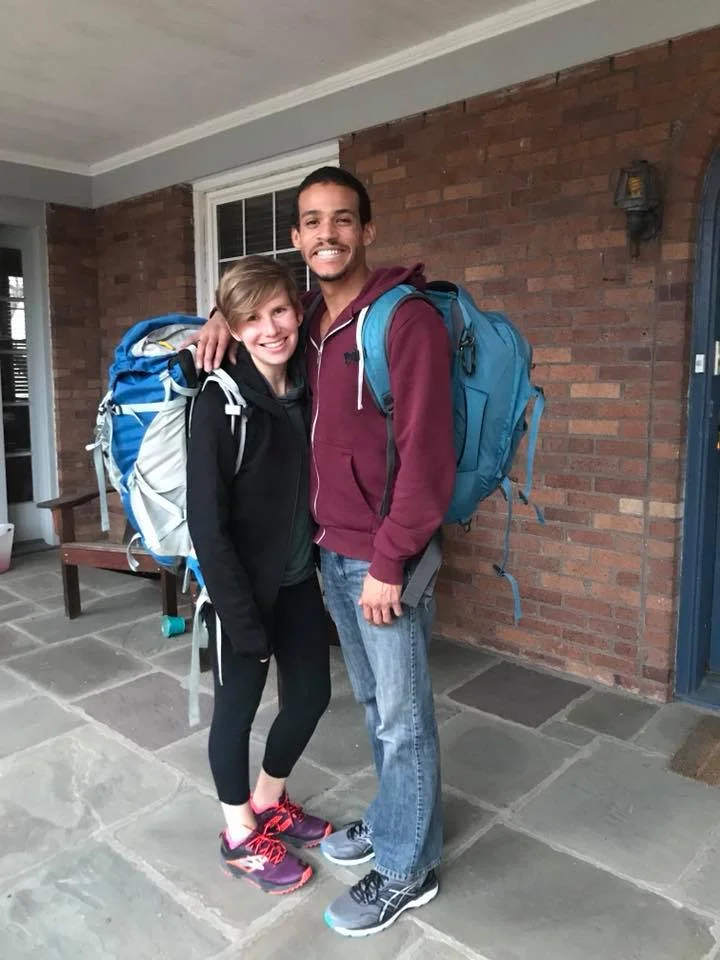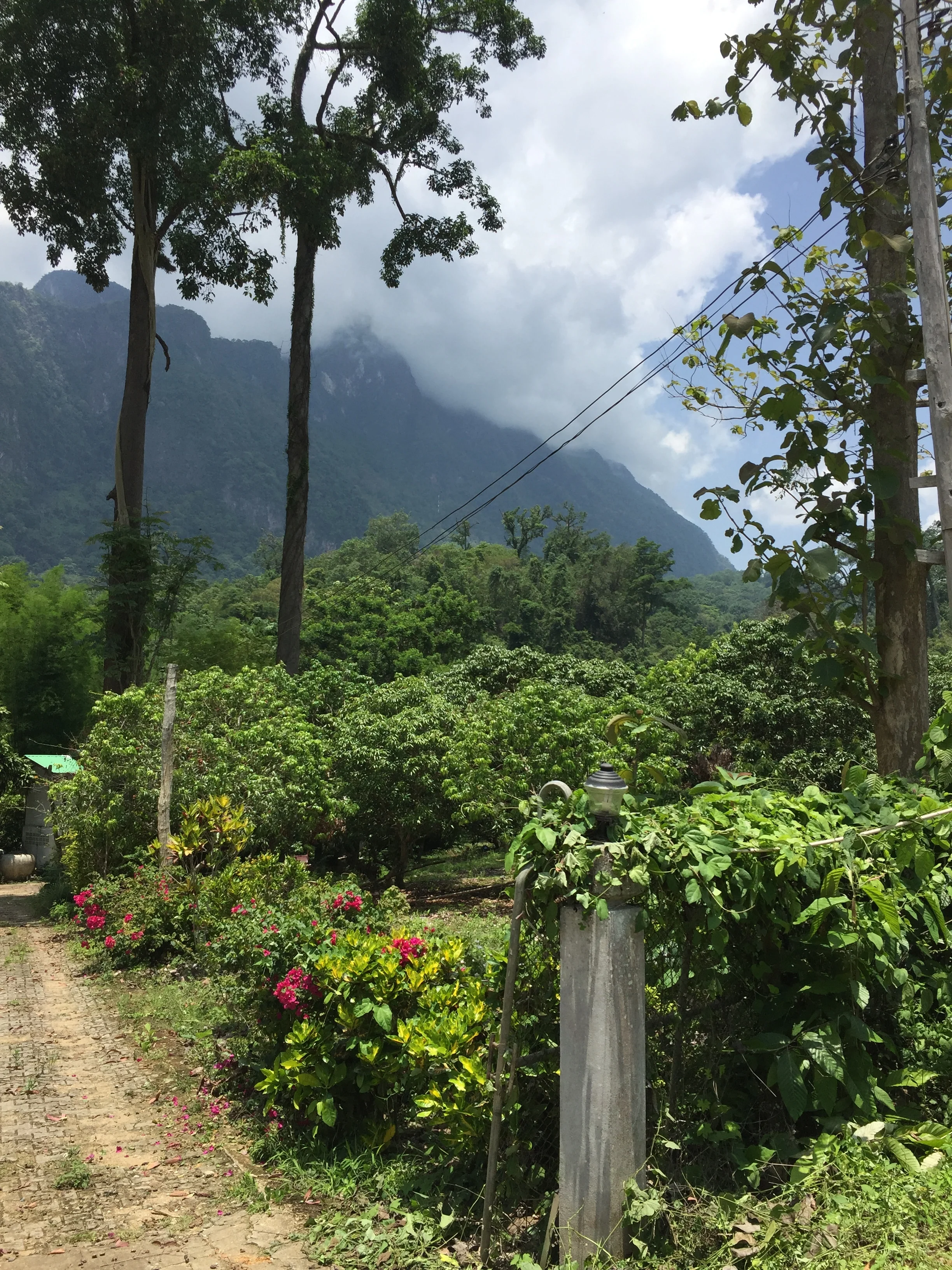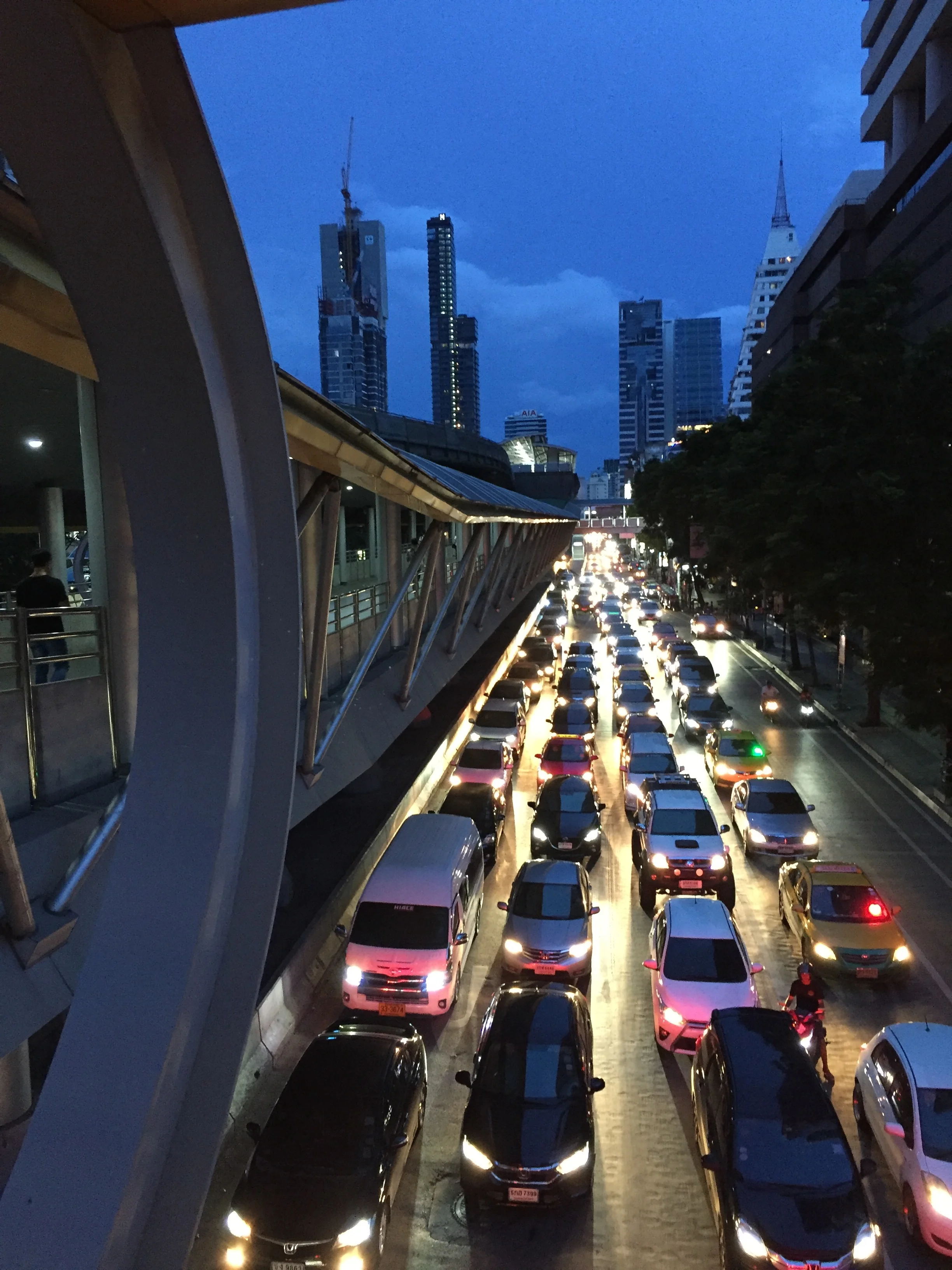Chiang Mai: Ancient and Modern
Chaing Mai in northern Thailand is known for it's chill vibe and essential Thai way of life. We've heard awesome things from fellow American travelers and were looking forward to slowing down and staying a while. All we knew was that it's another popular expat city and less chaotic than Bangkok. I didn't do too much prior research, but it was nothing as I expected.
Mural in the Old City
Chiang Mai is a contemporary sprawling city. My first impression was that it was more metropolitan than I anticipated.
Graphic in the Chiang Mai Cultural City Arts and Cultural Center
We rented an apartment for a week across from the Maya Shopping Center, with big international brands, a multi-screen theater, and plenty of eateries. We stayed in the Nimman area, which is off of Nimmanhaemin Road. The slew of back streets around Nimman are considered to be the trendiest part of Chiang Mai. The narrow streets are lined with chic boutiques and quirky cafés.
Although we appreciated the ease of access to familiar amenities (read: peanut butter and H&M), Chiang Mai still maintains a rich traditional culture. The Buddhist temples and spiritual practices in the area are pervasive. The feeling of the past intertwined with the present is tangible, with distinguished monuments along side modern structures.
The Old City is situated in the heart of Chiang Mai, surrounded by a moat that sections off the historic walls.
Our apartment was about a 20 minute walk from the Old City, but it's easy to get around by songthaew. The open red taxis are everywhere and should cost a flat rate of 30 baht per person, about 1 USD.
To me, the city's most alluring aspect is that it's enveloped by verdant, misty mountains.
The city draws you in. It's easy to see how so many visitors come and never leave.
Early in the week, we took a tour with one of Will's distant cousins. He grew up in Chiang Mai and had a keen understanding of the city's culture. He now drives a tuk tuk and gives tours of Chiang Mai for a living.
The day started early at the market where we picked up ten pouches of sweet sticky rice topped with egg custard, wrapped in a banana leaf.
We drove up toward Wat Phra That Doi Suthep, referred to as Doi Suthep, though that's the name of the mountain it's situated on.
We stopped halfway to offer breakfast to monks presiding in the nearby temple. Buddhist monks typically eat one to two meals per day, with their last meal around midday. In the morning, usually before 7 a.m., they receive food from Buddhist followers.
We offered a few monks the sticky rice, and in return, they preformed a blessing. We removed our shoes, knelt, and pressed our palms together and brought them to our forehead. Will put his hat on the ground, which he quickly picked up, as we learned that it's disrespectful to place an item that's on the highest part of your body on the ground where you walk.
Once we got up to the base of Doi Suthep, we got strong coffee from a local stand and enjoyed a couple packets of sticky rices from the market.
They were delicious. The sticky rice is cooked in a rich coconut cream and palm sugar. It's topped with a steamed custard made of eggs, coconut milk, and more palm sugar. Each is neatly wrapped in a banana leaf and secured with a toothpick.
To gain a bit of context about the city, we visited the Chiang Mai City Arts and Cultural Center. It's located in the center of the Old City, next to the Three Kings Monument, or Anusawari Sam Kasat. The monument honors the alliance that founded the city, between Phaya Ngam Meuang of Phayao, Phaya Mengrai of Chiang Mai and Phaya Khun Ramkhamhaeng of Sukhothai.
The museum itself extensively explains agricultural practices, hill tribe people's traditions, and Buddhist regional beliefs. The exhibits detail early settlements to modern times.
The museum also provides background on the Lanna culture. Chiang Mai was founded in 1296 as the capital of the ancient Lanna Kingdom. Chiang Mai, translating to New City in Thai, is over 700 years old. The city was considered new when King Mengrai moved his capital down to the banks of the Ping River from Chiang Rai during the late 13th century.
The rich history can help visitors appreciate some of Chiang Mai's current cultural practices. We wandered the Warorot Market, where many locals do their shopping. The side streets around the Warorot Market have Hill Tribe and Northern Thai handicraft stall, such as textiles and silk.
The interior of the Warorot Market is three floors and sells clothing, home goods, groceries, and also ample dried fruits and preserved fishes.
Our time in Chiang Mai also entailed many bowls of Khao Soi, dubbed the dish of .Chiang Mai. Our first bowl was at a restaurant was called Dang that was quite popular among locals. Plastic chairs, pitchers of complimentary weak tea, and quick service.
Although they had other dishes, we were there for the Khao Soi.
Thai coconut-curry noodle soup contains fresh egg noodles, a rich, fiery broth, fried egg noodles, and pickled aromatics. There are many variations, such as the one below served with sausage, which we enjoyed later in the week.
My favorite anytime snack was the fresh fruit. It's remarkable. You would think the pineapple is from a can, if you didn't see it cut it in front of you. It's served with a sugar chili packet for dipping. And grilled bananas, which served with a spoonful of condensed milk in a takeaway bag.
Out of sheer curiosity, we tried durian since it was literally everywhere. It's a popular delicacy in many Southeast Asian countries, dubbed the "king of fruits." If you're not familiar, it's pungent and not in a good way. In fact, it was banned to bring the fruit inside our apartment due to the stench. Whereas some think it smells rotten, others think it tastes of a rich custard. It's odor and taste are surely polarizing, but we weren't fans. At all.
When we weren't exploring the local eateries or sites, we treated Chiang Mai as home. We'd walk the streets with no agenda.
We admittedly got fair use of the pool in our apartment, since it was so hot. Usually around 90 degrees before 9 a.m.
We really got to know our neighborhood. Had our go-to spots and knew the local merchants. Our favorite mango sticky rice stand was around Nimman.
We ate most meals at One Nimman since it was literally across the street from our apartment. There were dozens of street food-like stalls inside.
Hallway leading to One Nimman
It's best to go for lunch, not dinner, for fear of my favorite dumpling stall selling out.
When we weren't at One, we also liked Zood Zood. Will favored their spicy Tom Yum soup.
I liked their egg wrapped pad thai, which is essentially pad thai inside a thin omelet.
We really enjoyed the Nimman neighborhood as it became increasingly familiar. This was a place where we would go off and explore on our own for a few hours. Plus, Will liked that our apartment had a gym. We're finding how much we appreciate having an apartment, to formulate some sort of resemblance of a routine. We could do laundry on the first floor. Also refill our water bottle--six liters for only ten baht (30 U.S. cents).
Will found a great local barbershop and it started to feel like we were there far longer than a week.
We grabbed beers at Propeller Bar, off of Nimman Road. At night, the temperature drops and there's plenty of live music. You can really get a feel for Chiang Mai's charm.
The city's youthful ambiance is partially attributed to the university. Chiang Mai University is centrally located downtown.
On one particularly hot day, we walked to the campus.
Founded in 1964, it's the first institution of higher education in northern Thailand.
We snuck in student lounges, classrooms, and gymnasiums. I have a strong affinity for exploring college campuses, at home and abroad. We found dioramas of students' future vision for the school.
More than anything, I unabashedly love markets. Markets of any kind. Will calls them festivals. And Chiang Mai is known globally for some stellar night markets.
The street food was exceptional and extensive. The barbecue chicken satay was great. But the mango sticky rice will forever be my favorite dish in Thailand.
Chiang Mai really has everything you're looking for in a city. It's rich history and Buddhist traditions lends itself to constant learning. It's walkable with a great food scene. And above all, it's easy to escape to the surrounding lakes and mountains.
Chiang Mai is growing and changing. It's the kind of place I foresee will be completely different in only a few years. It's already changed so much. But hopefully the Old City and Buddhist practices will hold some of the city's integrity. Because it truly is a wonderful place just as it is.

